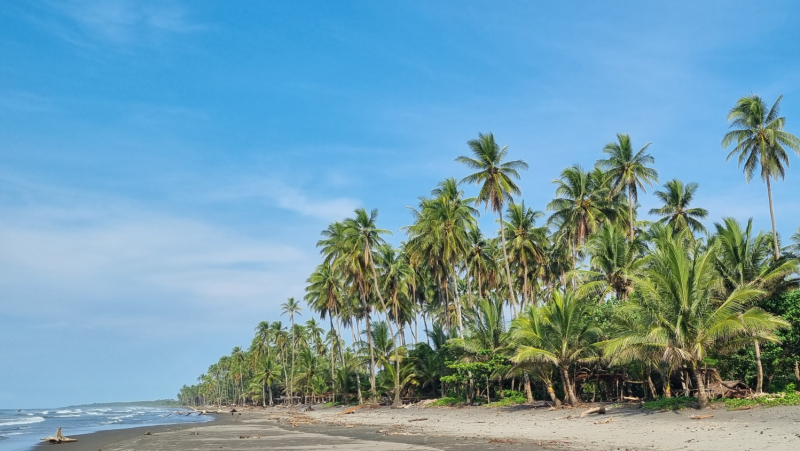Banks urged to refuse MUFG’s call to finance Papua LNG
Eri Watanabe,
Market Forces
Kate Simpson,
Media,
Market Forces
Antoine Bouhey,
Reclaim Finance
Helen Burley,
International Media,
Reclaim Finance,
+ 44 7703 731923

Eri Watanabe,
Market Forces
Kate Simpson,
Media,
Market Forces
Antoine Bouhey,
Reclaim Finance
Helen Burley,
International Media,
Reclaim Finance,
+ 44 7703 731923
Copublished with Centre for Environmental Law and Community Rights Inc. (CELCOR), Papua New Guinea, Japan Center for a Sustainable Environment and Society (JACSES), Friends of the Earth Japan, Jubilee Australia Research Centre, ActionAid Australia, Market Forces, Reclaim Finance
Thirty-one civil society organisations are raising the alarm about financing for a new LNG project in Papua New Guinea, following the news that Japanese bank MUFG has taken on the lead role seeking finance for the project (1). The NGOs have written to private and public banks urging them not to finance the project, which is being developed by TotalEnergies, ExxonMobil, Santos and JX Nippon.
MUFG, which was recently discovered to have taken on the lead role, replaces the French bank Crédit Agricole, which withdrew from the project earlier this year following criticism over the climate, biodiversity and human rights impacts. MUFG is the biggest supporter of LNG expansion globally, providing more than US$10 billion across 90 deals in 2023 (2).
MUFG’s involvement comes after the Final Investment Decision for the project was postponed until late 2025, due to rising costs and major international banks’ reluctance to provide finance.
Campaigners are targeting 29 banks and lenders (3), highlighting the financial risks facing the Papua LNG project (4), as well as the climate risks which they say will jeopardize banks’ commitments to keep global warming below 1.5 C.
Eleven banks, including the French bank BNP Paribas and the Commonwealth Bank of Australia have so far ruled out financing for the project (5), which will involve 9 production wells, a 320 km onshore and offshore pipeline, and 4 electric liquefaction trains. Campaigners warn that exploitation of the gas will result in over 220 million tons of CO2 emissions (scope 3), equivalent to the annual emissions of Bangladesh and its 169 million inhabitants.
"MUFG’s decision to step in as financial advisor for the controversial Papua LNG project, abandoned by French banks, underscores its glaring risk management failures. By supporting a project that violates the Equator Principles and which does not appear to have obtained the free, prior and informed consent of Indigenous communities, MUFG reveals its disregard for its own commitments to responsible financing." - Eri Watanabe, Japan Energy Finance Campaigner at Market Forces
Papua LNG is one of 156 planned LNG terminal projects, which if built, could collectively unleash a massive 10 gigatonnes of climate-wrecking greenhouse gas emissions, and undermine efforts to limit global temperature rise below 1.5 C (6).
Banks have provided significant backing, pouring US$213 billion into LNG expansion between 2021 and 2023, with US and Japanese banks the biggest supporters, providing more than US$51 billion and US$30 billion for LNG expansion respectively. This support comes despite the fact that many of these banks, including MUFG, have committed to achieve net zero emissions by 2050 (7).
"While global financial institutions pivot away from oil and gas to align with the 1.5°C pathway, MUFG and Mizuho doubled down on LNG expansion financing, inviting global criticism. MUFG and other global banks must join European and Australian banks in rejecting the Papua LNG project and commit to ending financing for oil, gas, and unnecessary LNG infrastructure." - Eri Watanabe, Japan Energy Finance Campaigner at Market Forces
"People in Papua New Guinea deserve clean energy and a sustainable economy. PNG has already identified renewable energy projects that could dramatically expand energy access for everyday people. We don’t need fossil gas and 95% of Papua LNG’s gas will be sent overseas. The climate crisis is hurting our people, our lands, our livelihoods. We are not fooled by the false promises of fossil fuels. Banks must not finance this project. If they do they risk being knowingly complicit in human rights, climate and environmental harms." - Peter Bosip, executive director of the Papua New Guinea NGO, the Centre for Environmental Law and Community Rights (CELCOR)
"It is time banks woke up to the climate impacts of LNG expansion. Banks must act on their commitments to net zero and switch their investments out of fossil fuel projects and to sustainable energy." - Antoine Bouhey, campaigner at Reclaim Finance
"Signatories to this open letter include groups from PNG, Japan, South Korea and other parts of Asia. This signals resistance to Papua LNG across the supply and investment chain – from the place where fossil gas will be extracted, to its intended locations of finance and gas reselling, to the end markets likely targeted for its gas. This reflects the depth of human rights, climate and biodiversity concerns. It forewarns financiers that they may risk legal or non-judicial complaints, damages claims or other financial risks if they fail to heed these warnings." - Shona Hawkes, Director Land and Environmental Justice, Jubilee Australia Research Centre
Notes:
- Copies of the letter available: reclaimfinance.org/site/wp-content/uploads/2024/12/20241217-Letter-to-financial-institutions-regarding-the-Papua-LNG-project.pdf
- Frozen Gas, Boiling Planet – How bank and investor support for LNG is fueling a climate disaster, Reclaim Finance, December 2024
- The list of financial institutions targeted:
Banks: Alfa Bank (Russia), Bank of America (United States), Barclays (United Kingdom), BayernLB (Germany), BBVA (Spain), China Construction Bank/CCB International Finance (China), Citibank/Citigroup (United States), Deutsche Bank (Germany), DNB (Norway), DZ Bank (Germany), Goldman Sachs (United States), Intesa Sanpaolo (Italy), JPMorgan Chase (United States), Kina Bank (Papua New Guinea), Mitsubishi UFJ Financial Group (Japan), Mizuho (Japan), Morgan Stanley (United States), Royal Bank of Canada (Canada), Santander (Spain), Standard Chartered (United Kingdom), Sumitomo Mitsui Banking Corporation (Japan), UBS (Switzerland).
Public financial institutions: Asian Development Bank (ADB), China Development Bank, Export Finance Australia, Export-Import Bank of China, Export-Import Bank of Korea (KEXIM), Export-Import Bank of the United States, Italian Export Credit Agency (SACE), Japan Bank for International Cooperation (JBIC), Korea Trade Insurance Corporation (K-SURE).
- See: reclaimfinance.org/site/wp-content/uploads/2024/12/Frozen-gas-boiling-planet-frontline-story-papua-LNG.pdf
- ANZ, Bank of South Pacific (BSP), BNP Paribas, CIC, Commonwealth Bank of Australia, Credit Agricole, National Australia Bank, Natixis/ BPCE Group, Societe Generale, UniCredit Group and Westpac have all indicated that they will not support Papua LNG or have adopted policies that exclude financing for this type of project – despite having financed the first LNG project in Papua New Guinea (see: defundtotalenergies.org/en/papualng-2)
- See Frozen Gas, Boiling Planet, Reclaim Finance, December 2024
- Frozen Gas, Boiling Planet – how Japanese banks’ support for LNG is fueling a climate disaster, Reclaim Finance, December 2024


